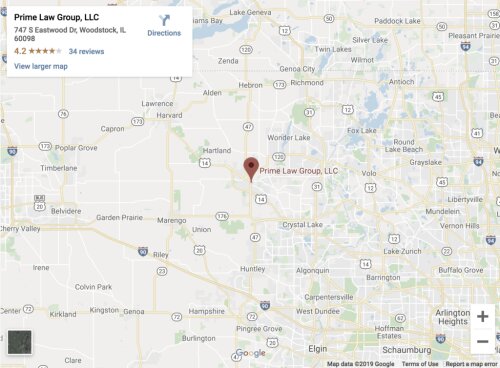Best Tax Lawyers in Alabama
Share your needs with us, get contacted by law firms.
Free. Takes 2 min.
Or refine your search by selecting a city:
List of the best lawyers in Alabama, United States
About Tax Law in Alabama, United States
Tax law in Alabama refers to the rules and regulations set by federal, state, and local authorities that govern the collection and payment of taxes by individuals and businesses within the state. Taxes in Alabama include income taxes, sales taxes, property taxes, and specific business-related taxes. The Alabama Department of Revenue is responsible for administering and collecting most state taxes. Tax law in Alabama can be complex, involving various statutes and administrative rules that change over time. Understanding your tax obligations and rights is essential to remain compliant and avoid penalties.
Why You May Need a Lawyer
There are many situations where consulting a tax lawyer can be beneficial. Some common reasons include:
- Facing an audit by the Alabama Department of Revenue or the Internal Revenue Service
- Disputes or appeals over tax assessments or property tax valuations
- Dealing with unpaid taxes, tax liens, or garnishments
- Starting a new business and needing advice on tax structure and compliance
- Receiving notices of tax penalties or interest on overdue taxes
- Questions or issues related to inheritance, estate, or gift taxes
- Facing criminal charges related to tax evasion or fraud
- Negotiating payment plans or Offers in Compromise with tax authorities
- Needing representation in court or administrative hearings
A tax lawyer can help you understand your options, protect your assets, and ensure you comply with all applicable tax laws.
Local Laws Overview
Alabama tax law is governed by both state statutes and local ordinances. Key aspects include:
- Personal Income Tax: Alabama imposes a state income tax on individuals, with rates ranging from 2 percent to 5 percent. Taxpayers must file annual returns and may also owe local occupational taxes in some cities.
- Corporate Tax: Corporations in Alabama are subject to a 6.5 percent income tax, as well as a business privilege tax that is based on net worth.
- Sales Tax: The state sales tax rate is 4 percent. However, local governments can impose additional sales taxes, which vary by city and county.
- Property Tax: Alabama property taxes are relatively low compared to other states but are assessed differently depending on whether the property is residential, agricultural, or commercial.
- Use Tax: This applies to out-of-state purchases brought into Alabama for use, storage, or consumption when sales tax was not paid at the time of purchase.
- Inheritance and Estate Tax: Alabama does not currently impose a state-level inheritance or estate tax, but federal taxes may still apply.
- Excise and Other Taxes: There are additional taxes on items such as gasoline, alcohol, tobacco, and certain utilities.
Tax laws can frequently change, and municipalities may have additional requirements, so it's important to stay up-to-date or consult a professional.
Frequently Asked Questions
What is the deadline to file state income taxes in Alabama?
The deadline for filing Alabama state income tax returns is typically April 15, in line with the federal tax deadline. Extensions may be available in certain circumstances.
Do I need to file an Alabama state tax return if I do not live in the state?
Nonresidents must file an Alabama tax return if they earn income from Alabama sources, including wages, rental income, or business operations within the state.
How do I dispute a tax assessment or bill from the Alabama Department of Revenue?
You can file an appeal or protest with the Alabama Department of Revenue. It is recommended to present supporting documentation and consult with a tax professional or lawyer for guidance.
What are the consequences of not paying my Alabama taxes?
Failure to pay taxes can result in penalties, interest, tax liens, wage garnishments, seizure of property, and in severe cases, criminal prosecution.
How do property taxes work in Alabama?
Property taxes in Alabama are assessed by county tax assessors based on the value and type of property. Rates and exemptions vary depending on location and use.
What sales tax rate applies to my city or county?
Alabama has a base state sales tax of 4 percent, but additional local taxes may apply. Check with your city or county government or the Alabama Department of Revenue for specific rates.
Are Social Security benefits taxed in Alabama?
Alabama does not tax Social Security benefits or most types of retirement income received by residents.
What taxes do small business owners need to pay in Alabama?
Business owners may be responsible for business privilege tax, income tax, sales and use tax, and possibly local business licenses or occupational taxes.
Can I make payments on overdue Alabama taxes?
Yes, the Alabama Department of Revenue may allow you to set up a payment plan or, in some cases, negotiate a settlement such as an Offer in Compromise.
When should I consult a tax attorney instead of an accountant?
You should consult a tax attorney if you are facing audits, tax disputes, potential criminal charges, or need legal representation. Accountants are useful for preparing returns and planning but cannot represent you in legal matters.
Additional Resources
If you need further information or assistance, the following resources can help with Alabama tax matters:
- Alabama Department of Revenue - Offers forms, guides, and resources for individual and business taxpayers
- Internal Revenue Service - For federal tax questions and assistance
- Local County Revenue Commissioner or Tax Assessor's Office - For property tax questions
- Alabama State Bar - Provides lawyer referral services and information on local practitioners
- Low-Income Taxpayer Clinics - Offer free or reduced-fee representation for qualifying individuals
- IRS Taxpayer Advocate Service - Helps taxpayers resolve ongoing tax issues
Next Steps
If you need legal assistance with tax matters in Alabama, consider the following steps:
- Gather all relevant documentation related to your tax issue, such as notices, returns, and correspondence
- Clearly identify your concerns or the challenges you are facing
- Consult with a qualified tax attorney who is licensed to practice in Alabama and has experience with the specific type of tax issue you are encountering
- Ask about consultation fees and what documents you should bring to your appointment
- Follow your attorney's advice carefully and respond promptly to any requests for information
- Stay informed about deadlines and legal requirements to protect your rights and avoid additional penalties
A knowledgeable tax attorney can explain your options, help you comply with state and local laws, and provide valuable representation in any disputes or negotiations with tax authorities.
Lawzana helps you find the best lawyers and law firms in Alabama through a curated and pre-screened list of qualified legal professionals. Our platform offers rankings and detailed profiles of attorneys and law firms, allowing you to compare based on practice areas, including Tax, experience, and client feedback.
Each profile includes a description of the firm's areas of practice, client reviews, team members and partners, year of establishment, spoken languages, office locations, contact information, social media presence, and any published articles or resources. Most firms on our platform speak English and are experienced in both local and international legal matters.
Get a quote from top-rated law firms in Alabama, United States — quickly, securely, and without unnecessary hassle.
Disclaimer:
The information provided on this page is for general informational purposes only and does not constitute legal advice. While we strive to ensure the accuracy and relevance of the content, legal information may change over time, and interpretations of the law can vary. You should always consult with a qualified legal professional for advice specific to your situation.
We disclaim all liability for actions taken or not taken based on the content of this page. If you believe any information is incorrect or outdated, please contact us, and we will review and update it where appropriate.
Browse tax law firms by city in Alabama
Refine your search by selecting a city.














